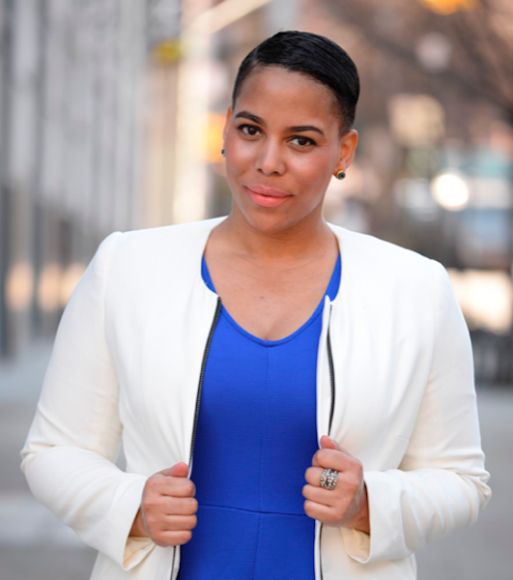Grief is yesterday, today, tomorrow, never, forever, now, always. You turn a corner, hear a familiar tune or catch someone in profile and suddenly, you’re plunged into a world of intense emotion. You may smile or burst into uncontrollable sobs. Grief is funny that way. It is, Queen Elizabeth II said after 9/11 — the day on which she lost more of her subjects than in any other terrorist attack — the price we pay for love.
Asha Tarry is an author, an award-winning community mental health advocate, a psychotherapist and a certified life coach who has dealt with grief personally and professionally. Tarry has 20 years of experience providing evaluations, diagnoses, treatment and life-enhancing skills to children, adults, families and couples. A significant portion of her work has been conducted in marginalized communities with survivors of intergenerational trauma, as well as with professionals in search of a fulfilling life.
As a writer and speaker for several publications, which once included one of the nation’s largest online medical news outlets in the black community, BlackDoctor.org, Asha has demonstrated anecdotal evidence that therapy works, and that mindfulness is a holistic way of healing yourself on a continuous basis. Her work as a mindfulness practitioner has been used by professionals in the United States, Asia and Europe, with partnerships through Thrive Global, an Arianna Huffington company, to prevent employees from experiencing workplace burnout. The goal of work is to enlighten, educate and create safe spaces for everyone, from children to the elderly, to live more emotionally empowered and mentally resilient, she says. Her new book is “Adulting as a Millennial: A Guide to Everything Your Parents Didn’t Teach You” (Jones Media Publishing, $14.99).
At a time when we’ve lost so many of our countrymen through the coronavirus and police violence against blacks, we asked Tarry to talk to us about how to grieve those losses:
First, thank you for taking the time to talk with us via email. The other day, I found a card with a painting of the Twin Towers and burst into tears, even though I never cried when I was covering 9/11. Why is grief so personal and unexpected?
“There is no specific reason why grief is so unpredictable. The mind has its way of adapting to things, sometimes at various times in our lives in ways that may be able to cope with unexpected loss at points when we’re in a place to receive and process it. And at other times, depending on what else we may be experiencing, it may have a relapse in accepting loss as finite.”
We have been in a season of grief with all the deaths from the coronavirus and police brutality. Does it matter that President Donald J. Trump has not been much of a consoler in chief?
“That depends on if you are looking for leadership from someone who’s been consistently unavailable to the general public. Communities across America have repeatedly been offended, disregarded, disempowered and disrespected by the president since his induction into the White House. It’s not in the best interest of people who feel any of the above to expect there to be any difference in his presentation now or later. Our wisdom should come from entities that we feel safe with. For a lot of people, Trump is not one of those people.”
Is grief heightened by a sense of an opportunity missed — justice denied or someone dying young?
“I believe it can be compounded, sure. Unexpected grief has different meanings to people. It can change the way we feel about the world, our spirituality, our hope in humanity or it can numb us from feeling, too.”
Does religious faith, particularly the sense of an afterlife, assuage grief?
“For some people, yes, it does. Religion and spirituality have helped people for generations find solace in being able to communicate and convene with loved ones beyond physical death. As we know, there are several religions and secular groups who practice rituals to honor and solicit responses from their ancestors after death. There are religious texts that talk about death in human form but the continuation of life in spirit.”
What is the best way to address other people’s grief?
“What I would do is start by asking people how you can be available to them. They may not always know the answer to that right away. Going back to an earlier response about the unpredictability of grief. I would not recommend using your own scope of practice to inform what other people may want or need. Mostly, if you commit to being there for people, let your actions confirm that. That may include that it could take a while. But honor your word to people. Be patient with people as they figure out what they want to do with their grief. Try not to personalize your response to them if they forget to call you sometimes, or they take a while to ask for help. Wait, and then reach out to them again. Let people be who they will discover they are during the various stages (six specifically — denial, bargaining, anger, depression and acceptance, as per psychiatrist Elizabeth Kübler-Ross, with the sixth, meaning, added posthumously by her sometime co-author, David Kessler, whom I quote in my book).”
What are some strategies for addressing our own?
“Take time to be with any unwanted feelings that arise on their own. If you are offered time off from work, think about taking it. For some people, depending on the relationship to the person who died, they may find it hard to be at home or not be active, so working while in bereavement might be helpful. Let each person decide what’s best for them.
“Some people like to use their time and energy to memorialize their loved ones. That may look like creating a scholarship fund in the deceased’s name or participating in a specific cause related to the death of their loved one. For other people, creating a small shrine at home to commemorate their loved one’s life may be important. I’ve helped people explore a lot of ways they want to heal through grieving. It takes time and those around us should stay open to being there when the time arises for those who are grieving to choose what ways they want to remember people they’ve lost.
“In the meantime, talking about your loved one has helped people to accept death as a natural occurrence in life.”
When I lost the aunt who raised me, I read that I would be in a different place with my grief six months later and I was. I still mourned her, but I felt as if a light had gone on. Is there a point at which grieving for a loved one should end?
“There is evidence-based literature that points to grief beyond six months as becoming what we call in psychology and sociology as “complicated grief” — that is where the person continues to experience significant signs or symptoms associated with not adapting to their loss, such as talking about their loved ones in present tense, or becoming depressed. However, I appreciate the way David Kessler, the author of “Finding Meaning: The Sixth Stage of Grief” talks about the spectrum of feelings and experiences people have with grief. It’s not automatic that at six months people feel better or relieved of their pain. I would consider the role that that person played in their deceased member’s life and their attachment to them. Based on the model of therapy, some may want to medicalize an individual’s experience at six months. But I would like to think we can expand on this and look at relationships, culture, tradition and other support systems that aid in people being able to grieve in a healthy way, before delineating this process to a specific time.”
What made you decide to become a psychotherapist?
“There were several factors that went into my decision. I wanted to offer people an experience of healing themselves that was not based on a medical model of treatment, and I believed if I did so with creativity, evidence-based therapies and a positive regard for humanity, people would be able to live more abundantly and also be able to live life with more honesty, love and longevity. I wanted to be a part of the process of watching people positively change their lives. And l also enjoy seeing how the mind affects mood and behaviors and being able to use science to create powerful transformations in people’s lives.”
How has your own experience of grief informed your practice?
“It has made me more sensitive to meeting people where they are psychologically. I am more patient with people who have lived with grief. Before I experienced multiple, significant losses myself last year, I became acquainted with a few different approaches to bereavement. I use mindfulness as a way of healing myself and being present to the physical as well as mental processes of death and dying. It’s also made me more interested in learning how we can find meaning in our lives while we survive grief.”
What would you say to those who cannot seem to get past their grief?
“As I presently do with people I live among as well as those I provide treatment to, I simply say very little. Instead I listen and watch what’s going on. I watch to see how they continue living with grief or how it may be manifesting into something more complex. I don’t try to do anything for them as much as I wait to see how they adapt and take care of themselves. When I feel inclined to know more about their thoughts, and their unconscious dreams, I inquire and listen some more. What I’ve learned is that people come to their own conclusions about living with grief. If anything, I remind them that they are alive for a reason. When they discover what other reasons there are for living, they survive it, like so many people before them and after them.
For more, visit lifecoachasha.com.





